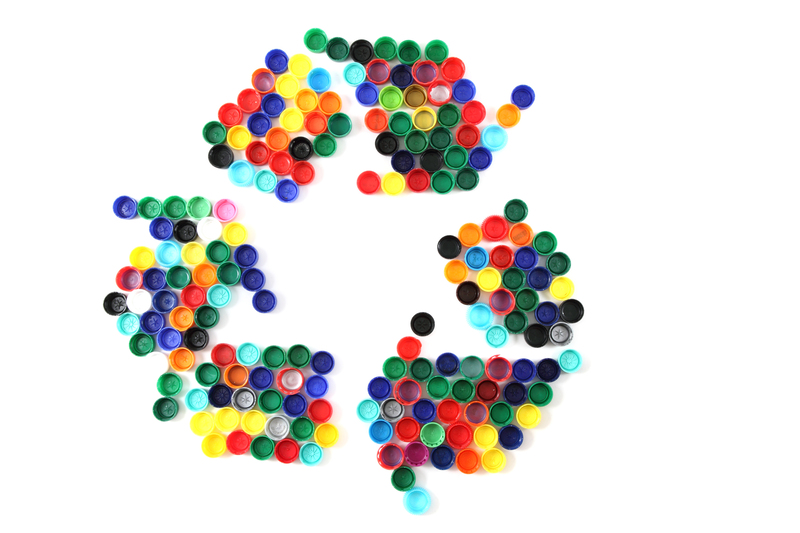Handling Leftover Household Trash
Posted on 15/05/2025
Handling Leftover Household Trash: A Comprehensive Guide
In an age where sustainability is more critical than ever, managing household trash efficiently is a key step towards reducing our environmental footprint. Leftover household trash can be both a nuisance and a hazard if not handled correctly. This article delves into effective methods, tips, and strategies for dealing with the leftover trash in a way that is both eco-friendly and practical.
Understanding Household Trash
Household trash is a broad category that includes everything from food scraps and paper products to old electronics and worn-out clothing. To effectively manage leftover trash, it's essential to segregate it into categories for better handling:
- Organic Waste: Biodegradable items such as food scraps, yard waste, and paper products.
- Recyclables: Items that can be recycled like glass, metal, plastics, and certain kinds of paper.
- Hazardous Waste: Items that contain harmful substances, such as batteries, cleaning supplies, and electronics.
- General Waste: Non-recyclable and non-organic items, such as certain types of plastics and broken household items.

Reducing Household Trash
The first strategy for handling leftover household trash is to reduce the amount produced. Here are some effective ways to achieve this:
Adopt Minimalism
One of the primary ways to reduce household trash is by adopting a minimalist lifestyle. Buy only what you need, and refrain from accumulating unnecessary items. This reduces both the logistical burden of managing excess items and the environmental impact associated with waste.
Opt for Reusable Items
Switch from disposable items to reusable ones. For example, use cloth bags instead of plastic bags, reusable water bottles instead of disposable ones, and cloth rags instead of paper towels. These small changes can drastically reduce your household waste over time.
Recycling
Recycling is one of the most effective ways of managing leftover household trash. However, not all recyclables are created equal. Proper knowledge and sorting are crucial:
Know Your Recyclables
Understand what materials are recyclable in your area. Typically, paper, cardboard, certain plastics, glass, and metals are recyclable. Check local guidelines as they can vary significantly.
Proper Sorting
Separate your recyclable materials from other waste. Contamination can ruin batches of recyclables, rendering recycling efforts futile. Rinse out containers and remove any non-recyclable parts before placing items in recycle bins.
Use Recycling Centers
If your local waste management service does not pick up certain items, take them to a recycling center. Many centers accept a wider range of materials, including electronics, batteries, and hazardous waste.
Composting
Composting is a great way to handle organic waste. This natural process turns food scraps and yard waste into nutrient-rich soil. Here's how to get started:
Set Up a Compost Bin
Purchase or build a compost bin. Choose a location that is easily accessible but out of the way. Some people prefer using kitchen compost bins to collect scraps before transferring them to larger outdoor bins.
Balance Green and Brown Materials
Successful composting requires a balance of green materials (fruit and vegetable scraps, coffee grounds) and brown materials (leaves, cardboard). This mix ensures a healthy compost environment that decomposes efficiently.
Maintain Your Compost
Turn the compost regularly to aerate it and speed up the decomposition process. Keep the compost moist but not waterlogged. Within a few months, you'll have rich compost to use in your garden.
Proper Disposal of Hazardous Waste
Hazardous waste should never be disposed of with regular trash due to its potential to harm the environment and human health. Here's how to manage it:
Identify Hazardous Materials
Common household items that are considered hazardous include batteries, paints, cleaners, pesticides, and certain electronics. Be mindful of the products you purchase and use at home.
Utilize Hazardous Waste Collection Services
Many municipalities offer special collection days or drop-off locations for hazardous waste. Utilize these services to ensure safe disposal.
Never Pour Chemicals Down the Drain
Chemicals can contaminate water sources and harm aquatic life. Always follow disposal instructions on product labels and use designated disposal services.
Innovative Methods and Community Involvement
Innovation and community efforts can also play a significant role in managing leftover household trash:
Participate in Community Programs
Many communities offer programs such as bulk waste pickups, free recycling days, and hazardous waste collection events. Participating in these programs can help you manage difficult-to-dispose items.
Explore Upcycling
Upcycling involves creatively reusing items that would otherwise be discarded. Old mason jars can become candle holders, and worn-out tires can be transformed into garden planters. Upcycling not only reduces waste but also adds a personal and unique touch to your living space.
Support Zero-Waste Stores
Zero-waste stores focus on reducing packaging waste. Products are sold in bulk, and customers bring their own containers to fill. Supporting such stores encourages sustainable shopping habits and reduces the overall waste generated.

Educating and Engaging Your Household
Handling leftover household trash effectively requires participation from all household members:
Set Up a Waste Management System
Create a clear and organized waste management system at home. Label bins for recycling, compost, and general waste. Make it easy for everyone in the household to follow the system.
Educate Family Members
Take the time to educate family members about the importance of proper waste management. Teach children about recycling, composting, and the hazards of improper waste disposal. The sooner they learn, the better their lifelong habits will be.
The Bigger Picture
Tackling household trash management is not just about individual responsibility; it's a collective effort that can contribute to a cleaner, more sustainable planet. Policy changes, community involvement, and technological advancements in waste management are crucial. By taking proactive steps at the household level, we can collectively make a significant positive impact on the environment.
In conclusion, handling leftover household trash requires a multi-faceted approach that includes reducing waste, recycling, composting, safe disposal of hazardous materials, and community involvement. By adopting these strategies, we can minimize the environmental impact of our everyday actions and move towards a more sustainable future.
Latest Posts
Environmental Harm from Poor Waste Practices

 020 3744 5548
020 3744 5548










